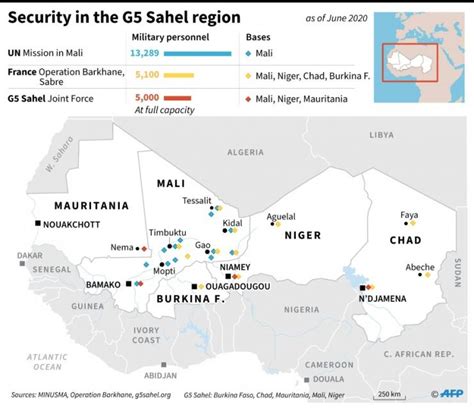As we reported earlier, France is in thefight against so-called "Islamism". But this is not only happening nationally, but also internationally.
France has been trying for years to revive its colonial history in many African coutries, though it never went away. More than seven years ago, Francesent troops to Mali after armed "Islamists" took several towns. What has happened since then? The "Islamists" to be fought expanded their influence throughout the Sahel, over 10,000 civilians died, over a million are on the run. Instead of enforcing law and order, the French troops are suffering huge losses, both human and financial.

Together with the five countries Mali, Burkina Faso, Chad, Niger and Mauritania, France is once again attempting to master the situation, under French leadership of course. That is why earlier this week there was a summit with the countries mentioned, where France tried to get the countries to expand their own "anti-terror fight" and gain control over the states. Although France already increased its troops from 600 to 5100 last year, this still does not seem to be enough for them. Instead, France is now hoping for further support from European countries.
France's interest in the region is no coincidence. Although the French colonies declared their independence in 1960, France still has great economic and political influence in the region. In several former French colonies, payments are still made with the Communauté Financière Africaine (African Financial Community), or CFA for short, which used to be called Colonies Francaises d'Afrique (French Colonies in Africa). Furthermore, each government of a former colony is obliged to deposit at least 50% of its currency reserves with the French Treasury, and 85% of the countries' gold is held by the Banque de France. And these are just three examples of how France keeps its former official colonies dependent. This explains why, despite the strengthening struggle of the masses in the Sahel against their intervention and the hopelessness of success, France continues to hold on to its influence there.
